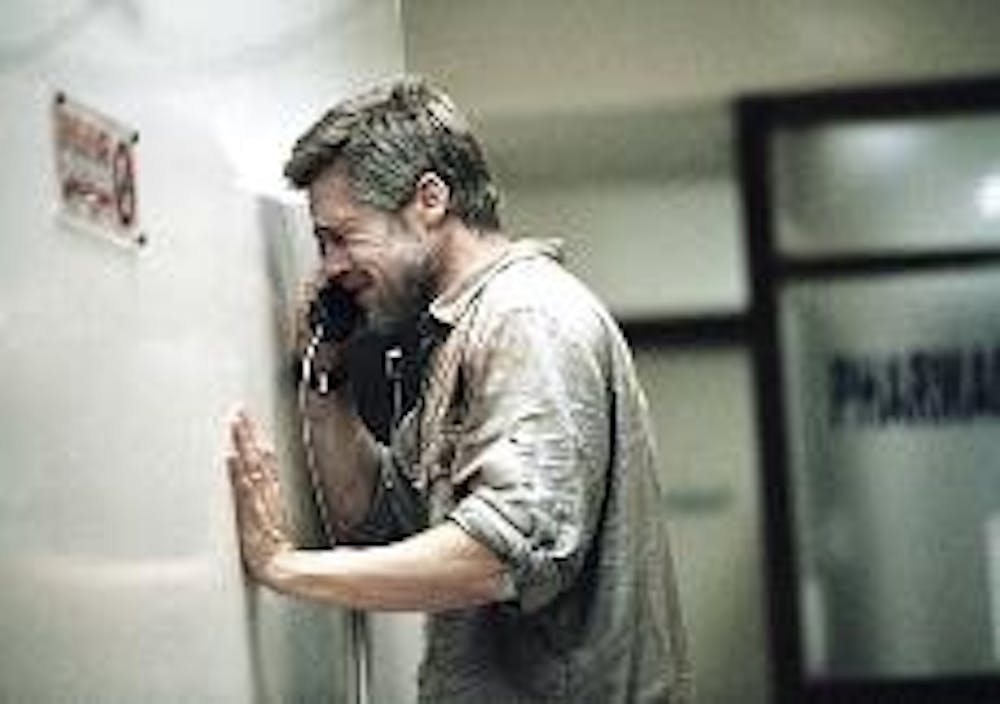"Babel" is Alejandro Gonzalez Innaritu's vision of the great tragedy that occurs when people refuse to listen. The vision comes from the story in the book of Genesis when people of all different backgrounds came together to build a tower to reach heaven. God punished these people by bewildering their languages, taking away their ability to communicate and destroying the tower of Babel. Through "Babel," Innaritu creates his own set of parables, each character's story illustrating mankind's inability to communicate.
The film takes place in four different countries (Morocco, Japan, the United States and Mexico) and is spoken in five different languages. This mixture of cultures and locations results in tremendous beauty. According to FLM magazine, Innaritu says his mission was to film "from a complex and universal standpoint until the more intimate plane of two people could be reached."
Each character's story is truly compelling, depicted by Innaritu's incredible filmmaking and cast, including Brad Pitt, Cate Blanchett, Gael Garcia Bernal, Adriana Barrazza and newcomer Rinko Kikuchi. Pitt gives arguably his most powerful performance to date. One scene where Pitt's character speaks to his children from overseas is especially moving. But easily the most memorable performance comes from Kikuchi, whose role will haunt audiences for its authenticity.
"Babel" is Innaritu's final film in a trilogy, following "Amores Perros" and "21 Grams." Innaritu films are made up of interconnected stories. Other movies, like "Crash," use the same technique. But unlike "Crash," "Babel" is composed of only four linked stories, making the characters seem much more genuine and the film incredibly engrossing.
The tales of "Babel" include a deaf-mute Japanese girl struggling with her sexual needs, a troubled married couple caught in an irrational act of violence, a Mexican nanny forced to cross the border to reach her son's wedding and two Moroccan boys given their father's rifle to preserve their family's income. Their stories are overpowering, gripping and tragic the whole way through.
To make the stories as authentic as possible, Innaritu hired dozens of non-actors from each country to support his Hollywood cast. Directing these non-actors was a frustrating process for Innaritu, often resulting in the same misunderstanding the audience sees on screen. In an interview with Innaritu, he said that the worth of non-actors supercedes any level of frustration: "When you film natural people it is amazing. They are not conscious of the skills or techniques, they are just playing."
Visually, the film is spectacular. The cinematography carries the audience over the pathos and tragedies of each character's story. Even more impressive is Innaritu's manipulation of sound. He largely honed this skill by working as a DJ before becoming a director. Innaritu skillfully does what few other directors can: He makes the viewer feel as though they are in the film. In the scene where Cheiko, the deaf-mute Japanese girl, walks into a club, we hear the blaring music all around us but are quickly forced to adapt to Cheiko's lifestyle as the club suddenly goes quiet - as does the theater. Unlike most films where the audience is only shown the character's point of view, in "Babel" we hear it as well.
Babel's greatest fault is its convenience. Every character is a victim of circumstance. It is almost impossible for the audience to blame any character for a bad decision. Even though every character acts irrationally at some point in the film, the viewer is led to overlook their mistakes. While it is understandable to act unreasonably in a tragic situation, many of the character's actions push the limits of foolishness.
"There must a connection, an empathy, between the audience and the characters; if not there is no way [a director] can move people," Innaritu said. "Art must be an expression to communicate."
Innaritu has successfully created this relationship for his audience, making a film that is extraordinarily emotive. Even after the film ends, Innaritu forces the audience to translate everything and everyone around them. The message of "Babel" is loud and clear, brilliantly delivered by one of today's best directors in Hollywood.





